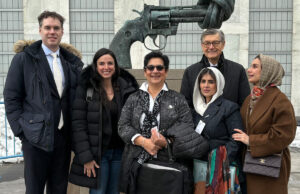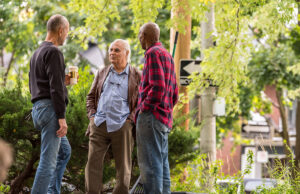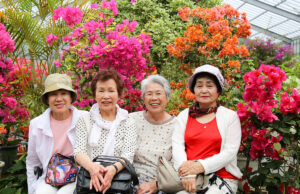Ageism During COVID-19

Older adults are disproportionally affected by COVID-19. Adults above the age of 65 are more likely to be hospitalized or die from COVID-19. With the development of COVID-19, ageism has resurged, contributing to false beliefs and prejudices about older adults.
Dialogue surrounding older adults has painted older adults as unworthy and a strain on the health care system. Older adults are depicted as “sitting ducks” who are vulnerable and helpless against COVID-19 and their deaths are seen as a normal outcome during the pandemic. The hashtag #BoomerRemover operates under the presumption that COVID-19 only affects older adults. Not only is this incorrect, it is incredibly offensive, hinting that older adults are not worthy of life based on the mere fact that they are old.
Young adults also tend to take fewer precautions for COVID-19 due to the assumption that only older adults are affected by COVID-19. This can be seen as young adults continued to travel during spring break despite public health recommendations. As a young adult myself, I have noticed this. Young adults have begun to treat COVID-19 as a thing of the past and have continued to live their lives normally. But it is important to continue social distancing and to wear masks to protect vulnerable populations like older adults.
There is also an assumption that older adults are equally at risk for developing COVID-19 because they are all frail. This is not the case. Not all older adults are frail and weak, many older adults remain active, maintain good health, and continue to have productive lives. Older adults are more at risk not because of their age but due to greater risk of chronic diseases and co-morbidities.
COVID-19 efforts have also patronized older adults by enforcing stricter restrictions on older adults. In Canada, older adults have been encouraged to register for the “vulnerable person registry.” COVID-19 efforts to protect older adults should emphasize their self-efficacy and acknowledge their capability to live independently and make their own decisions to protect their health.
Even though older adults are the most at risk for COVID-19, older adults in nursing homes have found themselves with little protection. Nursing home facilities lack PPE equipment and adequate supplies. They require more funding to regularly test their residents and staff. Most COVID-19 deaths are from nursing homes, yet there are very few news stories reporting how many older adults are dying in nursing homes. The lack of media coverage on deaths in nursing homes is ageist. Older adults living in nursing homes have vibrant lives and their deaths are tragic.
We must understand that older adults are a diverse population, and must not operate under the assumption that all older adults are frail and incapable of fending for themselves. We should not ascribe value to older adults on their productiveness or accomplishments. They are worthy of living the rest of their lives happily and safely. And in order for this to happen, we must continue to take necessary precautions to combat COVID-19 and continue to social distance.
By Randhika Aturaliya

Recently Added
February 19, 2026
Statement to the United Nations: February 2026
January 22, 2026




